Penalties are often a source of attraction for economists seeking to explore decision making. The data below considers English Premier League (EPL) penalties scored by 40 of the teams that have appeared in the EPL (EPL) to date. It does not included missed penalties - but as a general rule - the conversion rate over the long run is about 70%.
From the first graphic we can see that clubs that have appeared in the most EPL seasons to date (31 being the maximum) have scored the most penalties. Chelsea have converted the most to date (88), Man City are second (86), with Man Utd (84) and Liverpool (82) next. Arsenal (71), Tottenham (63) and Everton (60) are well ahead of 8th placed Crystal Palace (48).
However, the south London club are somewhat of an outlier. The Eagles have scored 48 penalties from just 13 seasons in the EPL.
Assuming the conversion rates are stable across clubs, there is no evidence that the bigger and more popular clubs score more penalties.
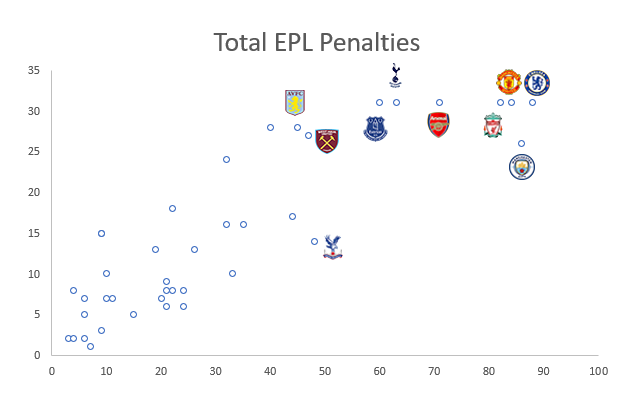
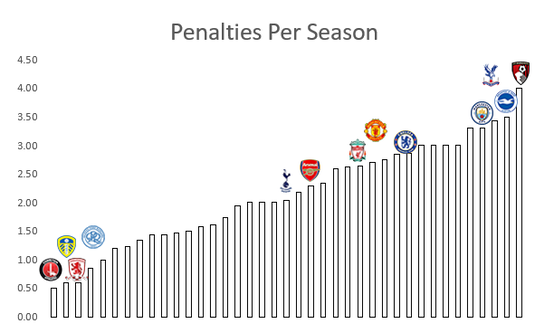

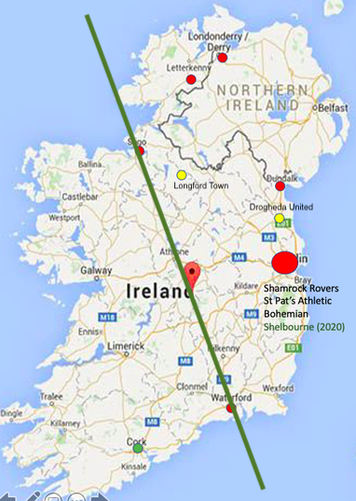
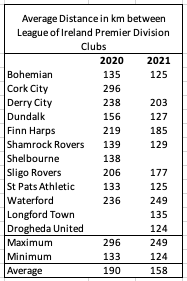
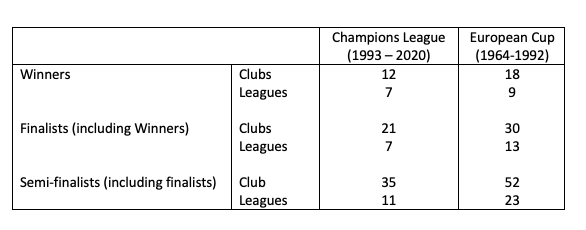
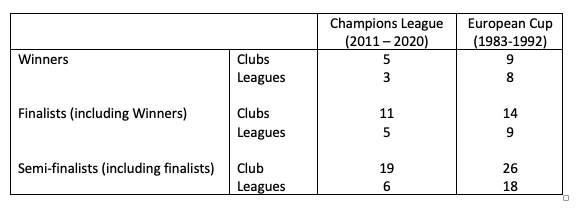
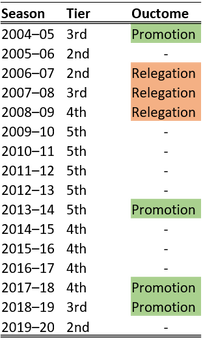
 RSS Feed
RSS Feed